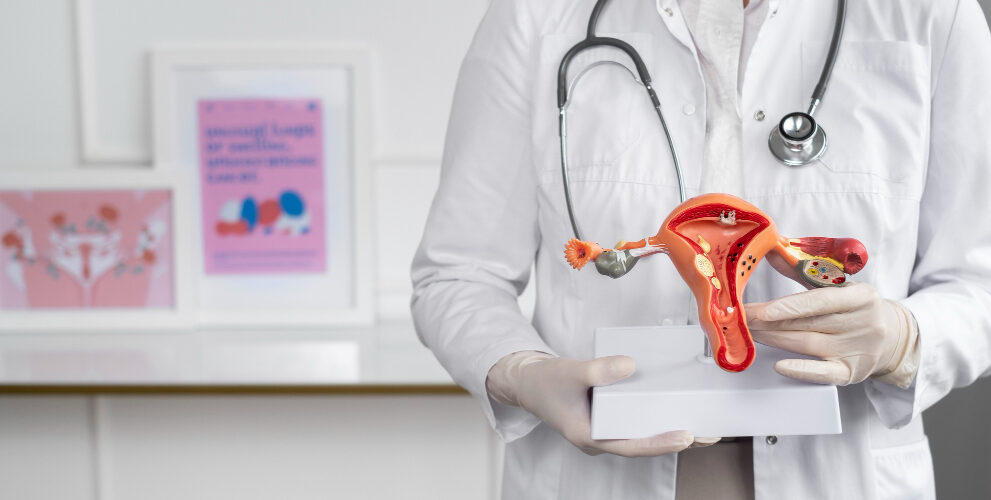FACT CHECK: Stress doesn’t cause PCOS, CBD oil doesn’t cure it, fenugreek may help
PCOS treatment requires medical guidance, not viral wellness hacks
Author
Author
- admin / 3 days

- 0
- 4 min read

Author
Polycystic ovary syndrome (PCOS) and polycystic ovarian disease (PCOD) are complex hormonal disorders affecting millions of women globally, yet a lot of misinformation about their causes and treatments persist. First Check verified three such claims sent in by readers through our tipline, with insights from a medical expert.
Claim 1: PCOS/PCOD is caused by stress
Fact: False, Stress does not cause PCOS/PCOD, but stress management is an important part of PCOS/PCOD treatment
Dr Juhi Bharti, Senior Resident, Department of Obstetrics and Gynaecology, at AIIMS, New Delhi says the stress worsens the PCOS/PCOD symptoms but does not cause the conditions.
“We do not see stress as a root cause commonly for the PCOS/PCOD,” Dr Bharti told First Check. However, she pointed out that for certain patients stress might have caused some of the triggers for PCOS/PCOD, especially if they have auto-immune disorders along with these conditions. “But this can only be determined after consultations.”
Explaining the role of stress, she said, that the chronic stress elevates cortisol levels, which might worsen insulin resistance, a key feature of PCOS, and amplify hormonal imbalances linked to irregular periods, acne, and excess hair growth.
“PCOS is primarily driven by genetic and metabolic factors, including insulin resistance and hyperandrogenism (excess male hormones),” she said. “Stress management is always recommended to improve a person’s overall condition but it cannot address the actual disorder.”
Claim 2: PCOS/PCOD can be cured by CBD oil
Fact: Unproven, no scientific study exists supporting the claim
There are multiple instances of this claim online, such as this Instagram post here. (EMBED)
However, First Check, did not come across any research that proved conclusively that CBD oil treats PCOS/PCOD. Experts we spoke to also said that there is no evidence to back these claims.
“I’m not aware of such cures. If they exist, we do not use these oils for treatment, I would not be able to comment on this,” Dr Bharti said.
CLAIM 3:
PCOS/PCOD can be improved by fenugreek seeds
FACT:
Research has shown that it can in fact help alleviate symptoms, and improve some of the effects of the condition.
A common claim on social media is the use of fenugreek seeds to improve PCOS/PCOD. Research has shown that it can in fact help alleviate symptoms, and improve some of the effects of the condition.
A 2015 study, analysed a “patent-pending fenugreek (Trigonella foenum-graecum) seed extract enriched in furostanolic saponins (Furocyst), to determine its efficacy in an open label, one arm, non-randomized, post-marketing surveillance study in 50 premenopausal women,” which found that ” 94% of patients responded positively to the treatment.”
Another study from 2024, found that “60 days of supplementation with fenugreek at a dose of 333 gr per day can statistically improve glycemic status, lipid profile, and reduce hair loss (temporal baldness). Fenugreek cannot substitute metformin in PCOS-related hyperglycemia. However, given its lipid-lowering ability and low frequency of adverse effects, it can be used as an adjuvant treatment in PCOS, especially in PCOS patients with hyperlipidemia or moderate to severe hair loss.”
Dr Bharti also said that while she cannot conclusively says whether it helps cure PCOS/PCOD or not, she has also heard of people claiming that it offers some relief.
“I have also come across the social media posts that Fenugreek seeds are being used to treat PCOS/PCOD. It is a popular part of home remedies. I cannot say whether it works or not, since I have not studied it, and neither have I checked if there is medical literature available on the use of Fenugreek and other such remedies. But people have said that it provides relief,” Dr Bharti said.
”What I can say is that there is no harm in using it as a supplement to a proper treatment from a medical professional. The danger is people might rely entirely on home remedies which in the long run won’t help you,” she added.
Dr Bharti said that PCOS/PCOD is usually managed by lifestyle changes like diet changes, exercising, and medications.
“My advice to anyone facing the issue is that do not try to treat yourself at home by taking medicines, go to a doctor and have a consultation,” she said.
Also read: Claims linking egg consumption to chronic illnesses like PCOS and eczema are unfounded









